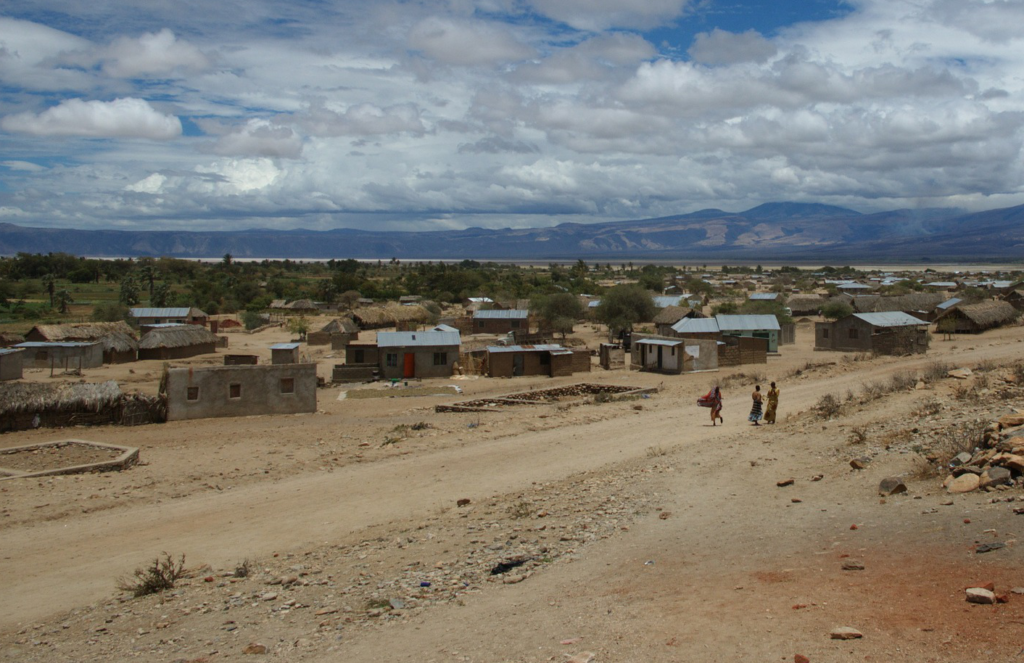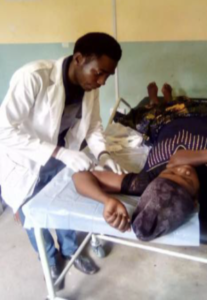Improving Access to Reproductive and Maternal Health Services
One Tanzania Healthcare Worker’s Skills-Building Journey

In the Simiyu Region of Tanzania, long-acting and reversible contraceptives (LARCs) have not been available to most women—only to those who could travel 100 kilometers to Somanda Regional Referral Hospital. For those women who couldn’t accommodate trip, which is two hours each way, the Ikungulyabashashi Dispensary—which serves a community of 5,000 people in Simiyu Region—could provide family planning clients with contraceptive pills and injectable contraceptives. A provider at the dispensary shared, “For about ten years we have been referring clients to Somanda Hospital and only a few clients could go to Somanda; the rest either opted for short-term methods or stayed without a family planning method.” Improving access to reproductive and maternal health services—including family planning services and LARCs in particular—was a critical challenge.
“For about ten years we have been referring clients to Somanda Hospital and only a few clients could go to Somanda; the rest either opted for short-term methods or stayed without a family planning method.”
Uzazi Uzima Project: Improving Access to Reproductive and Maternal Health Services
The Uzazi Uzima Project, implemented from 2017 through early 2021 in Simiyu Region, aimed to reduce maternal and newborn mortality and morbidity by improving the availability of quality reproductive, maternal, newborn, and adolescent health (RMNCAH) services and subsequent utilization of those services, including family planning. One key aspect of Uzazi Uzima (meaning “Safe Deliveries” in Swahili) is to enhance the knowledge and skills of health workers to deliver quality RMNCAH services.
A Quick Fix in the Community

Healthcare worker Shija Shigemela provides family planning services at the Ikungulyabashashi Dispensary. Image courtesy of Uzazi Uzima.
Shija Shigemela is a healthcare worker at the Ikungulyabashashi Dispensary. In 2018, Shija was selected to attend a two-week comprehensive family planning training, followed by a certification process three months later. Because Shija had not yet attained full competence in the insertion of intrauterine contraceptive devices (IUDs or IUCDs), he was linked with Uzazi Uzima’s outreach team for further practice and skills enhancement. One year later, Shija was reassessed for certification, and as a result of his job attachment with Uzazi Uzima, he was found to be among the most competent providers—able to provide proper health education and counseling on more types of family planning services, including LARCs.
Shija is now providing the full range of family planning services to the community of Ikungulyabashashi, enabling women to access LARCs locally, rather than be referred to distant health centers, which has increased women’s satisfaction and improved access to quality RMNCAH services. A provider at the dispensary said:
“Before, women would complain of being pregnant because they could not get a method of their choice or because they forgot to take pills since they were the only methods provided, but now you would not hear this challenge from women.”
Ikungulyabashashi dispensary is now reaching about 15 to 20 women with family planning services per week. Shija said: “I have targets that have helped me in my skills that I have to attend to family planning clients every day, no matter how busy it gets in the clinic.”
“I have targets that have helped me in my skills that I have to attend to family planning clients every day, no matter how busy it gets in the clinic.”
Conclusion
Since the inception of Uzazi Uzima, nearly 34,000 clients have received a family planning method in Simiyu Region. As the project progressed, there was an upward trend in the number of clients reached with family planning methods, with a large majority selecting LARCs—so those 34,000 clients represent 123,737 couple-years of protection overall.
The Uzazi Uzima project is a partnership between Amref Health Africa and Marie Stopes. The project was implemented from January 2017 through March 2021 with funding from the Government of Canada through Global Affairs Canada. Learn more about Uzazi Uzima.




